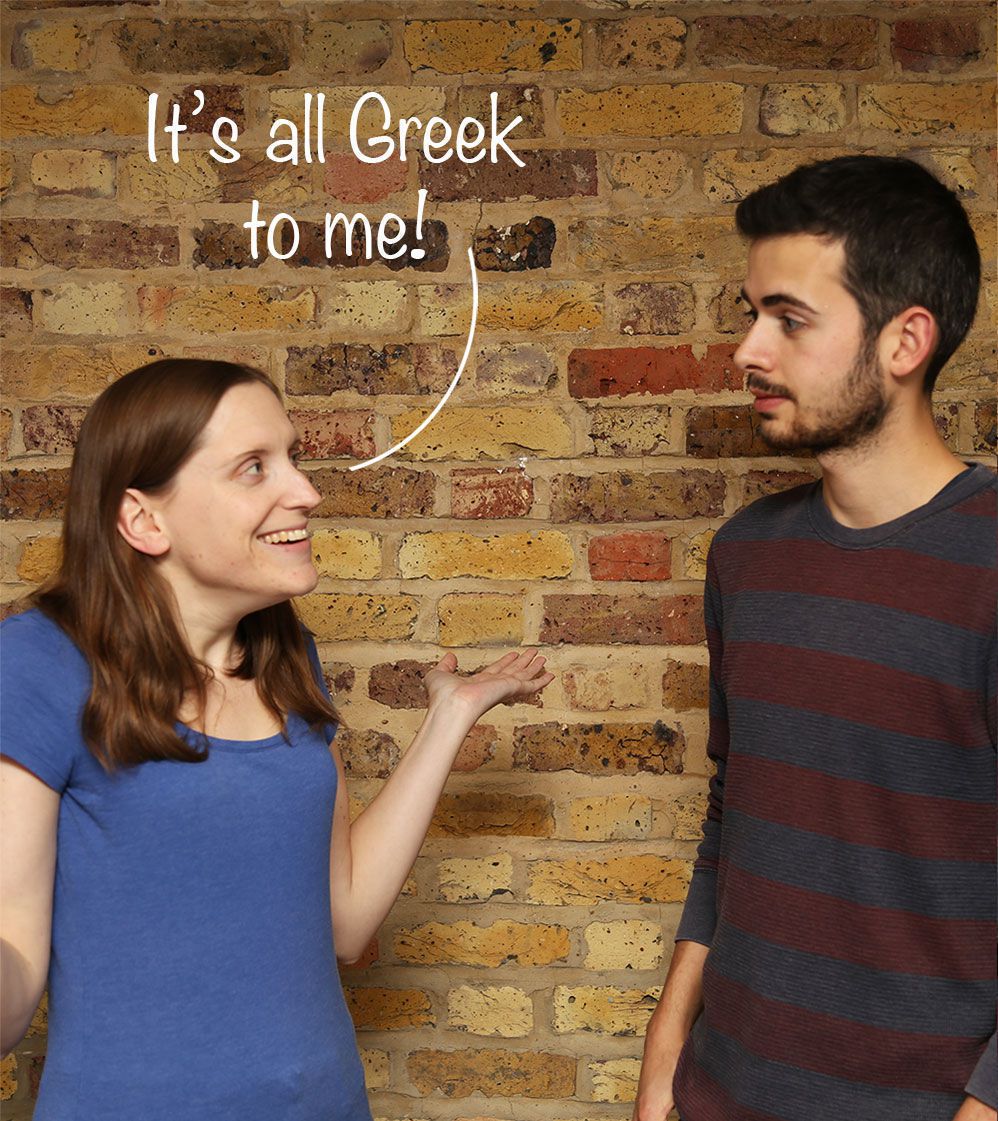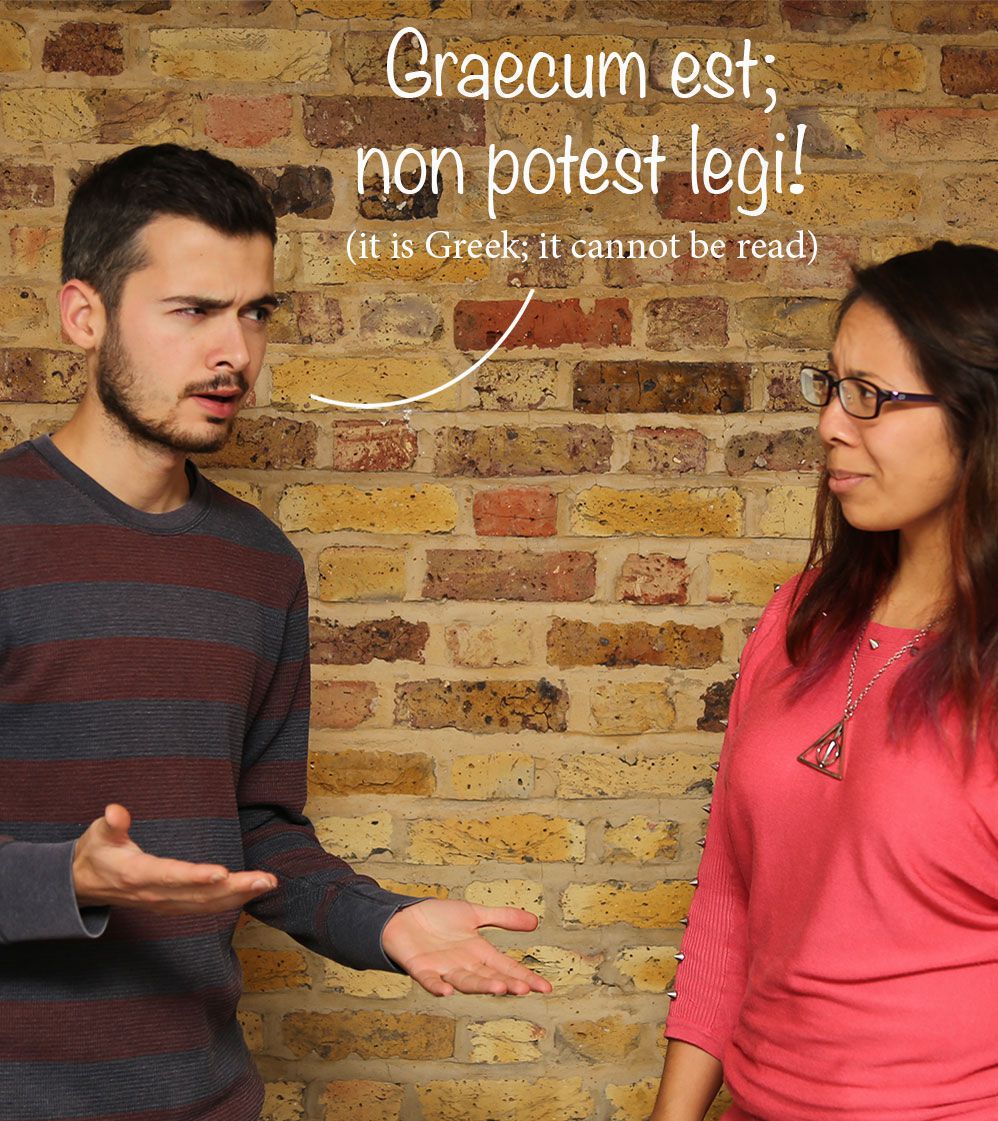Why Russian? Why not?
Lucy was our first ever winner of the Junior Language Challenge and at age 23 has now chosen to take part in the uTalk Challenge learning Russian. Lucy already speaks Spanish, French, Italian, German and Latin and has been learning languages since she was 10 years old.
Why? Why not?
I was talking to some friends at work at the beginning of January, and it came up in conversation that I was learning Russian. ‘Why Russian!?’ one said. ‘Why not?’ was my reply. People are often surprised when I say that I love learning languages. I think to them, it seems a little removed from what I normally do (I work in science). And while I may have decided to work in science instead of languages, that doesn’t mean to say that they aren’t useful to me.
When I was about 10, a teacher from the local secondary school came to teach us Spanish once a week, and I thought it was brilliant! My teacher entered some of our class into the first ever EuroTalk Junior Language Challenge; being able to learn three different languages was even more exciting. Spanish, Greek (my first experience of a language with a different alphabet), and Saami – Santa’s language (northern Finland, to be exact). Taking part showed me that language learning was fun, and set me on a course of lifelong linguistics.
I’d describe myself as a patchwork of languages; I can speak each to a different level, ranging from Italian, my speaking is poor but my translation is decent, to Spanish, where I can happily hold a conversation. My latest is Russian, which I’ve always wanted to learn; I’ve just about got to grips with the Cyrillic alphabet. It’s fun to learn so many languages, it stretches my brain, and I love the feeling of being able to speak to someone in their native tongue, a mixture of pride and respect for their culture. However, that doesn’t mean to say that I don’t have problems! The use of the subjunctive in Spanish will forever escape me (in English we only use it in one specific way, when we say ‘If I were you…’), and those odd little verbs in every language that don’t follow the rules always hide away in the recesses of my mind when I want to use them.
How do I overcome problems? Practice! Practice speaking with others out loud, using odd verbs and new tenses and reading with literature from your chosen language starting with children’s stories and building it up (good for new vocabulary and surprisingly complex!) If you are learning more than one, try to compartmentalise them in your head; have a Spanish head and a French head. My Latin is extremely handy for any new scientific terms, I usually have a guess at what they mean before looking them up. My other languages are great for holidays, trips with work and just keeping my brain active. I certainly don’t intend to stop (I think I may try Basque next): you never know when you might need them!
Learning Latin with Harry Potter
Just before Christmas I helped our language producer record Latin, which will be coming to uTalk later in the year. Whilst listening to the Latin speakers I found I recognised some of the words (although I have never learnt Latin before). And then I realised this was due to my love for/slight obsession with Harry Potter.
As a child I would read every Harry Potter book that came out (this could take some time, as my mum would read it first, followed by my sister, then my dad and then finally me; by which point my mum would have already disclosed a summary of the book including 100 different spoilers!). The extremely clever use of Latin has helped to allow the Harry Potter stories to become even more accessible worldwide, as Latin runs through many modern romance languages, such as French and English. It is also a language that isn’t as widely used or known in modern society anymore.
A few examples of J.K.Rowling’s use of Latin:
- ‘Protego’, which is a shield charm that creates a magical barrier, literally means ‘protect’ in Latin.
- ‘Lumos’, which produces a burst of light, is related to the Latin word lumen – which directly translates into light.
- ‘Crucio’ one of the ‘forbidden curses’ which causes a lot of pain, means ‘I torture’ in Latin.
- ‘Expecto Patronum’ which is used to produce a spirit animal to shield you from dementors, translates into ‘I wait for a patron’ in Latin.
- ‘Levicorpus‘, which is a spell that suspends someone from their ankles in mid-air, is a combination of two Latin words: levare, which means ‘lift’, and corpus translates as ‘body’.
These spells are pretty self-explanatory when you know Latin!
Again, the Latin theme can be found across names used in Harry Potter, often describing their personality or role in the books.
- Remus Lupin – his surname means wolf (which Hermione worked out early on in the third book).
- Draco – means dragon although the character’s surname, Malfoy, is actually French for ‘bad faith’.
- Severus (Snape) – means ‘stern’ in Latin, which is an appropriate word for Hogwarts’ meanest teacher!
- Sirius Black – it’s no coincidence that this character’s named after the Dog Star.
- Ludo Bagman – he’s the head of the Division for Magical Games and Sports, so it makes sense that his first name, Ludo, means ‘I play’ in Latin.
Can you think of any more examples of Latin in Harry Potter?
Alex
How does a Greek person say ‘it’s all Greek to me’?
‘It’s all Greek to me’. This is what an English speaker might say when they don’t understand something at all. In this context the Greek language is used as a metaphor for ‘something incomprehensible’.
So that got us thinking here at EuroTalk… if an English speaker uses Greek, what does a Greek speaking person use? And in fact how does this expression translate in other languages?
Well as it turns out there is a (somewhat complicated sounding) term for this – ‘language of stereotypical incomprehensibility’. So Greek is the language of stereotypical incomprehensibility in English.
Other languages have similar expressions and they usually pick as a metaphor for ‘impossible to understand’ a foreign language with an unfamiliar alphabet or writing system.
To answer our original question: in Greek the language used as a metaphor for incomprehensibility is Chinese.
Chinese actually turns out to be the most popular choice as a synonym for ‘I do not understand’ and is used in many languages, including Albanian, Arabic, Bulgarian, Catalan, Dutch, Estonian, French, Greek, Hebrew, Hungarian, Latvian, Lithuanian, Polish, Portuguese, Romanian, Russian, Serbian, Spanish, Ukrainian.
Greek itself follows closely, and is used as a language of stereotypical incomprehensibility in: English, Afrikaans, Norwegian, Portuguese, Swedish, Spanish, Polish, Persian.
(Bonus fact: the origin of the phrase in some European languages can be traced to the Medieval Latin proverb, ‘Graecum est; non potest legi’, which translates to ‘It is Greek; it cannot be read.’)
Sometimes the language of incomprehensibility is not a specific human language at all. For example a Chinese (Mandarin) speaker would use something that translates roughly to ‘Ghost’s script’, ‘Heavenly Script’ or ‘Sounds of the Birds’. And a Cantonese speaker might say, ‘These are chicken intestines.’
And how about a constructed international language, such as Esperanto? As a tongue-in-cheek reference, an Esperanto speaker would say ‘That’s a Volapük thing’, Volapük being another constructed language (with about 20 speakers).
How about you? What language do you use to mean ‘incomprehensible’? And is your language used by any other languages as a synonym for ‘impossible to understand’?
Bonus points question:
What does a person whose mother tongue is Greek, but who also speaks English, say in English when they want to say ‘It’s all Greek to me’?
Nikolay
Scire linguas: Why knowing your Latin can help your language skills
Thanks to London Translations for today’s blog post about the value of learning Latin!
Latin, a language that is more than 2,000 years old and is still spoken in the Vatican today, has shaped modern European languages like no other. Who would’ve thought that this medium of communication, which spread through the power of the Roman Empire, would influence language as we know it, speak it and understand it worldwide?
But why bother with learning Latin? If you don’t want to work in the Vatican, why should you learn a dead language? Surely you might as well focus on learning a modern language that actually helps you to communicate with other human beings, whether you’re travelling the world, writing emails or letters, or having business meetings with international clients.
However, despite being so old, Latin can give your language skills a real boost and help with a range of tasks, including consecutive interpreting. Why? Let’s take a closer look.
Better vocabulary
It’s a fact that almost 50 per cent of English vocabulary comes from Latin and 20 per cent from Greek. So if you know your Latin, you can derive an array of English words and improve your vocabulary in general. This applies to other European languages as well.
Better grammar
By getting to grips with Latin grammar, you can gain a better understanding of what grammar is about and how to apply that knowledge to other languages, making it easier to identify grammatical differences in a variety of languages.
Better learning of modern languages
If you know your Latin, it will be easy for you to apply your grammar and vocabulary skills to the modern Romance languages, such as Spanish, French, Portuguese and Italian. In fact, around 40 languages are connected to Latin. That is a big pool of knowledge.
Better performance in tests
People who know Latin generally outperform people who don’t in standardised tests. This may be because a language that has so many rules can help to shape logical thinking and cognitive skills in general.
Better foundation for different career paths
Knowing Latin and Greek can help to enhance your chances of succeeding in different career paths. In some professions, it is especially beneficial. Think of medicine, the law and philosophy.
As you can see, learning Latin has numerous advantages. It is not only a language for old, sophisticated men who sit in libraries all day. It is a language we should not forget and something that is well worth teaching future generations.
(In case you wondered what ‘scire linguas’ means, it translates as ‘learn languages’.)
If you’d like to try out a bit of Latin, you can find a free demo on our website.






